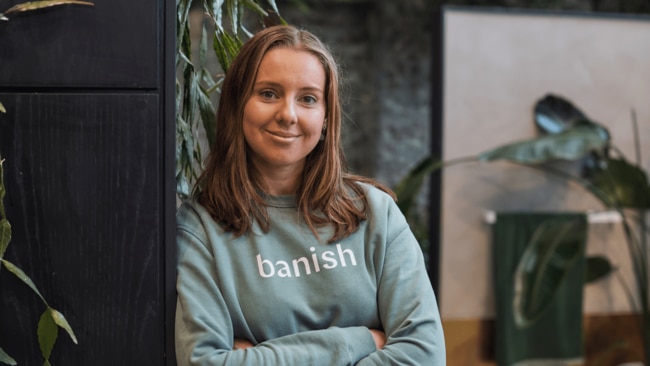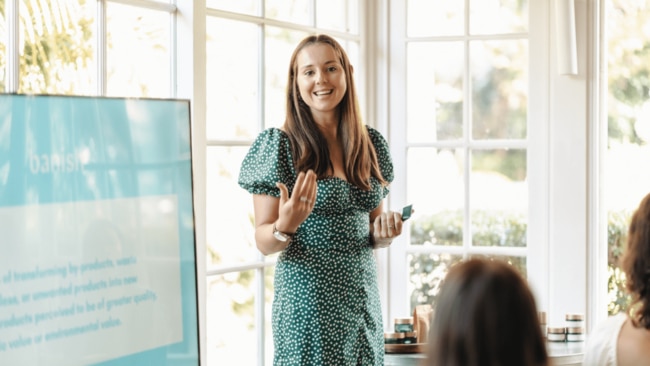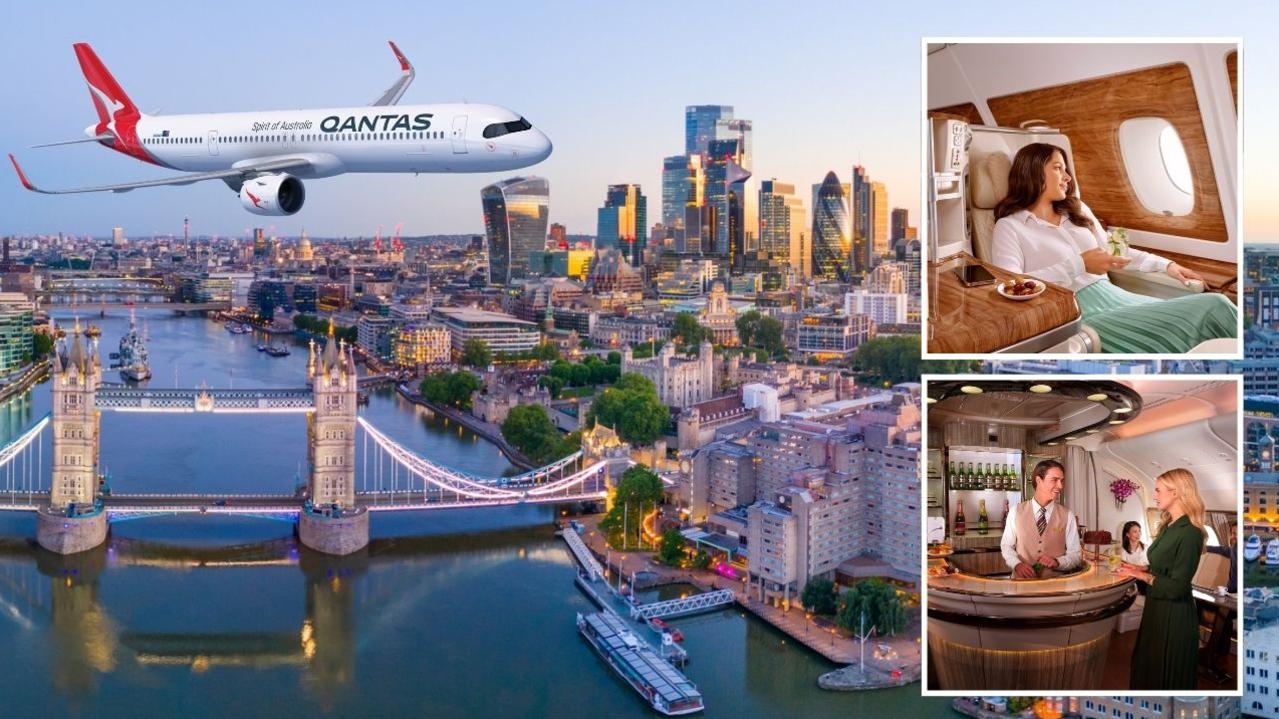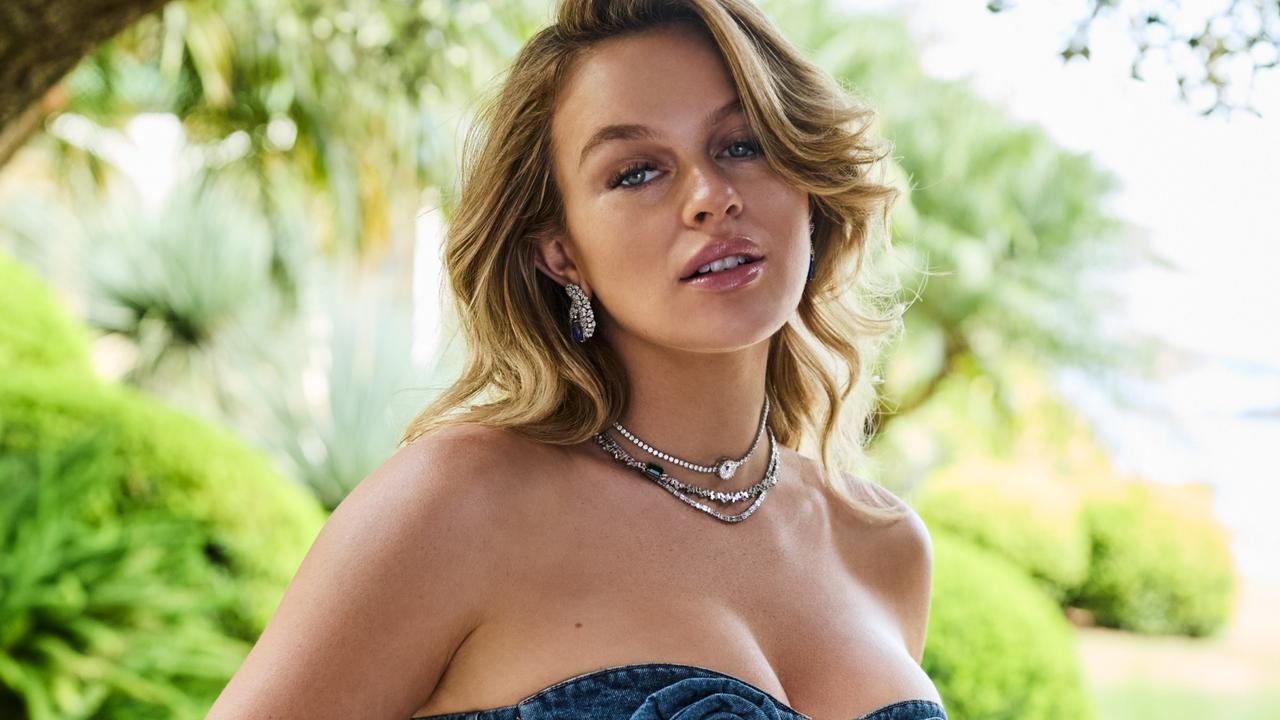Environmental advocate Lottie Dalziel says sustainability doesn't have to be expensive
It's easier than you think

Lifestyle
Don't miss out on the headlines from Lifestyle. Followed categories will be added to My News.
The award-winning sustainability advocate and author on letting go of perfectionism and why saving the planet doesn’t have to break the bank.
You founded Banish, a marketplace designed to help Aussies live more eco-friendly lives, in 2018. Since then you’ve opened Sydney’s sustainability hub, Banish’s own recycling programme and been named New South Wales’ 2023 Young Australian of the Year. Was there a lightbulb moment for all of this?
The idea for Banish came to me when I was working on a magazine feature about a day in the life of US actor Mark Wahlberg. He wakes up at 4 am, meditates, works out, has a smoothie and goes about his day.
I was about to make my own smoothie and put in a plastic straw in it, but I’d just set a really long list of New Year’s resolutions – to become fluent in Spanish, to run a half marathon – and one of them was to be better when it came to the planet. I’d read all these disheartening articles about there being more plastic than fish in the sea, and it felt like all of them were just telling me what was wrong with the world – not how I could make a change and take action. I typed ‘sustainable straw’ into Google and thousands of responses came up.
It felt overwhelming, so I created Banish as a way to educate everyday people on how they could actually take action when it came to their environmental footprint. Sustainability wasn’t cool or particularly spoken-about back then. Seven years on, it’s no longer a ‘nice to have’, it’s a ‘must have’.
There are so many challenges that come with running a business. What’s been your biggest personal challenge since making sustainability your career?
I’m a perfectionist so I’ve had to learn to acknowledge the fact that I won’t always be perfect and that I will sometimes have to consume things, whether it’s plastics, fashion or food waste. There is always going to be an impact that I make, but the impact that I'm making right now is so much less than it was when I first started. As soon as I acknowledged that, it got so much easier.

Your social media posts are littered with honest truths like this. What’s your relationship with it like day-to-day?
Social media is how I communicate and connect with most of my community, so it's a big part of what I spend my day job doing. Over the last couple of years I’ve started charging my phone outside my bedroom, which has been a game-changer for staying sane.
Before I go to sleep, I'll put my phone on charge somewhere like the kitchen – it ensures I read a physical book before bed and don’t start doom-scrolling the moment I wake up. I do have a little scroll on my commute, but my feed is pretty wholesome: my friends tease me that it’s basically just recipes, animals and old people in love.
Your book, 365 Ways to Save The Planet and Your Money, is all about actionable tips for being a waste warrior. What’s the most valuable piece of advice you’d like readers to take away from it?
One of the biggest things people have said to me was that they’d love to be more sustainable but that it’s just too expensive. I found this interesting, because one of the things I noticed in my journey was how much money I was saving.
Everyone asks what the most sustainable purchase they could make was – and my response was always that the most sustainable purchase you can make is to not purchase something at all. It's to look after what you’ve already got, to stop consuming. It’s so ingrained in us, that idea of just ducking out to the shops to grab a couple of things for dinner – but what about ducking into your pantry or the depths of your freezer?
What I’d really love is for readers to think twice next time they go to make a purchase: do I need to be buying it? Have I already got something similar? Ultimately, that's going to save you a tonne of money – and it's going to save the planet, too.

Fashion is an area many people struggle with when it comes to cutting down on new purchases. You made headlines for successfully completing your ‘no new clothes for two-years’ challenge back in 2020, saving yourself $7,000 in the process. What were your key learnings?
I didn’t tell my colleagues about the challenge for six months – and nobody realised. That was my biggest takeaway.
I'd be there thinking I couldn’t wear something because I wore it two days ago or had worn it to death – the fact that nobody even batted an eyelid was a big wake up call for me and a big step towards realising that I'm not actually dressing for anybody else; I'm just dressing for myself.
When I did go back to buying clothes, it completely reframed the way I looked at every purchase. Why was I buying it? How many different ways could I wear it? I look at clothes from that longevity perspective now. I need a black dress for a wedding next weekend, so the first thing I did was text my girlfriends to see if anyone had one I could borrow. I had seven different options straight away.
You’ve had a big start to 2025 with the launch of your book. What’s next?
I’m really lucky to have an amazing community around me at Banish. In March, we're launching a virtual education program designed to inspire the next generation to take action when it comes to living sustainably. We're also relaunching one of our podcasts, How To Save Our Planet. It’ll feature conversations with experts in different fields and is very much in line with the book in terms of inspiring action. That’s what keeps me going.
More Coverage
Originally published as Environmental advocate Lottie Dalziel says sustainability doesn't have to be expensive




